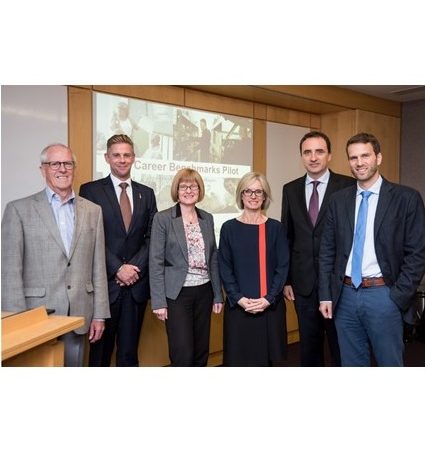
North East Ambition is blazing a trail at National Careers Week 2018
As National Facilitator: Careers Education for the North East Local Enterprise Partnership (LEP), it’s a privilege to attend the launch of National Careers Week in London today (Monday 5 March) and to address the National Careers Guidance show in Leeds on 8 March.
Both events give me a great opportunity to share the amazing progress that has been made by schools and colleges across the North East LEP area in relation to implementing the eight benchmarks of ‘Good Career Guidance’.
I can’t overstate the importance of high quality careers education and guidance; empowering young people to explore their futures and make informed decisions about the routes and pathways they wish to take.
Careers education is vital for social mobility, but it is also an economic necessity – supporting our young people to progress through education and training into more and better jobs.
Spreading the word
Of course a key question is how we ensure that each and every young person knows what options exist for them.
How can we expose them to a range of workplaces, education and training establishments and how can we help them develop the professional networks that will help them progress?
The answer is by providing superb careers guidance within schools and colleges.
National Careers Week gives us a fantastic opportunity to share and celebrate the brilliant things that our schools, colleges, businesses and enterprise advisers across the region are doing to implement our North East Ambition programme.
With over 130 schools and nine Further Education colleges all working towards achieving the benchmarks and over 120 business leaders signed up as enterprise advisers, we truly are leading the way – providing meaningful encounters for thousands of young people and providing innovative solutions to traditional problems.
We’ve been practicing what we preach at the North East LEP, by hosting work experience placements for sixth form students; offering extended placements for Special Educational Needs and Disability students; networking with Enterprise Advisers; delivering presentations in schools and developing projects between educators and business leaders that can be delivered within and beyond the classroom.
Events, activities and case studies – please get in touch!
Whether you are running an interactive careers fair, providing work experience, bringing employers in to support curriculum delivery or you’re a teacher spending time in industry – we want to shine a light on the great work that you are doing.
If you have any exciting activities and events planned, please let us know by emailing [email protected] or tagging us @northeastlep and we’ll share the information on social media. There is also the potential to profile your work as a case study on our website.
Please don’t forget to use the official hashtag #NCW2018 when you tweet and also tag us @northeastlep #NorthEastAmbition





